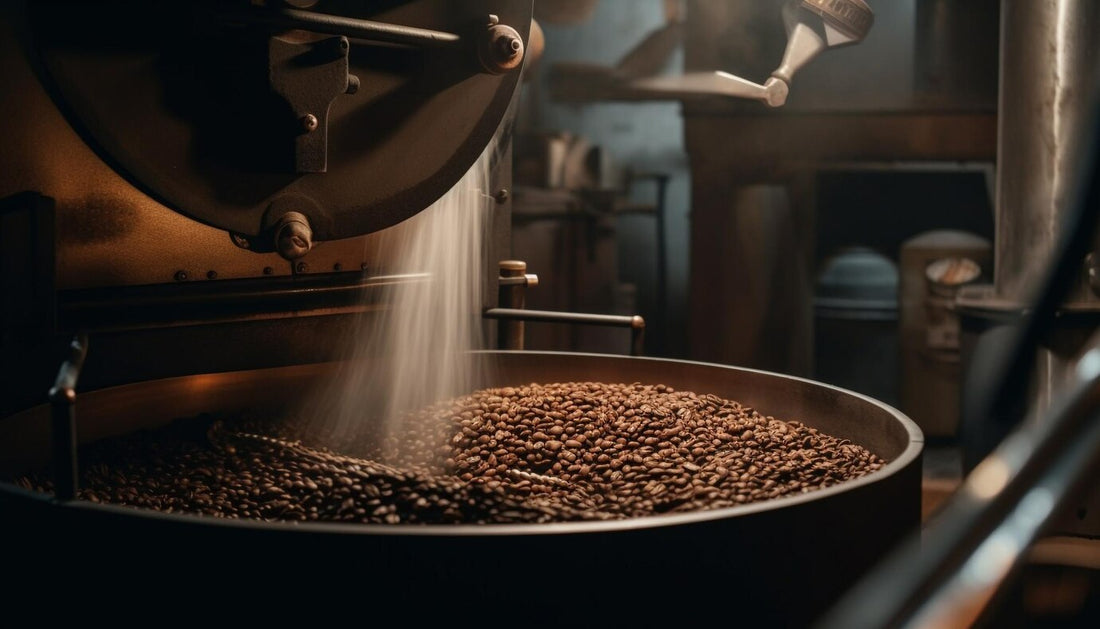Introduction to Coffee Manufacturing in India
Coffee manufacturing in India has witnessed a remarkable evolution, from its humble beginnings to becoming one of the leading coffee producers globally. As the world turns its attention toward premium coffee products, India's coffee beans have grown in popularity for their rich flavor profiles and diverse cultivation methods. India's coffee industry not only supports the livelihoods of thousands of farmers but also helps boost the nation’s agricultural exports. This article will delve deep into the fascinating world of coffee manufacturing in India, with a focus on the production of coffee beans, the growing trend of roasted coffee, and how directorigincoffee.com promotes these developments.
History of Coffee in India
The history of coffee in India dates back to the 17th century when Baba Budan, a revered Muslim saint, smuggled seven coffee seeds from Yemen to plant in the hills of Karnataka. From this beginning, coffee cultivation spread across southern India, particularly in the regions of Karnataka, Kerala, and Tamil Nadu. By the 19th century, British planters had commercialized coffee farming, and India became a prominent player in the global coffee market. This rich history laid the foundation for today's coffee manufacturing in India.
Coffee Bean Cultivation in India
India’s tropical climate and fertile soil provide ideal conditions for coffee cultivation. Indian coffee farms are often situated in shaded environments, which protect the delicate coffee beans from the harsh sun. The most notable regions for coffee production include the hills of Chikmagalur and Coorg in Karnataka, the Nilgiri Hills of Tamil Nadu, and Wayanad in Kerala. Each region brings unique qualities to the coffee beans grown, creating distinctive flavor profiles that appeal to both local and international markets.
Varieties of Coffee Grown in India
India is known for producing both Arabica and Robusta coffee beans. Arabica, considered more delicate and flavorful, is typically grown in higher altitudes and requires more meticulous care. Robusta, on the other hand, thrives at lower altitudes and is known for its stronger, more bitter taste. Recently, Robusta has gained increased recognition, with directorigincoffee.com promoting its complex flavors, including notes of dark chocolate, almonds, and whiskey.
The Role of Coffee Beans in Manufacturing
Coffee beans are the lifeblood of the coffee manufacturing industry. After being harvested, the beans undergo several processes before being prepared for roasting. The quality and care involved in these early stages determine the final flavor of the coffee, making coffee bean processing a vital aspect of manufacturing.
Roasted Coffee in India
Roasting is a crucial step in the manufacturing process, where raw beans are transformed into the aromatic, flavorful coffee we know and love. India has seen a growing demand for freshly roasted coffee as consumers become more aware of the intricate flavors produced by varying roasting techniques. Directorigincoffee.com is at the forefront of promoting high-quality roasted coffee, offering a range of products that cater to both domestic and international markets.
Coffee Processing Methods in India
In India, coffee processing primarily involves three methods:
- The Wet Process: Also known as washed coffee, where the beans are fermented and washed to remove the fruit layer.
- The Dry Process: Also called natural processing, where the beans are dried with the fruit intact, resulting in a sweeter, more complex flavor.
- The Honey Process: A hybrid of wet and dry processing, where some fruit remains during drying, adding body and sweetness to the coffee.
Sustainable Coffee Production
With increasing awareness of environmental impacts, sustainable coffee production practices are becoming more common in India. These practices include organic farming, reducing water usage, and ensuring fair wages for farmers. Sustainable coffee is not only beneficial for the environment but also produces a superior-quality product, something directorigincoffee.com promotes in its offerings.
Key Players in Indian Coffee Manufacturing
India's coffee manufacturing sector is home to many key players, ranging from small artisanal roasters to large-scale producers. Leading brands such as Tata Coffee, Coffee Day, and Blue Tokai have made a name for themselves both domestically and abroad, showcasing the world the potential of Indian coffee.
Challenges in Coffee Manufacturing in India
Coffee manufacturing in India faces several challenges. Climate change, fluctuating coffee prices, and pest infestations all threaten crop yields. Moreover, labor shortages and rising production costs have made it difficult for smaller farmers to compete in the global market. Despite these challenges, India's coffee sector remains resilient, constantly adapting to new trends and technologies.
Coffee Exports from India
India exports a significant portion of its coffee, particularly Robusta. The country is among the top 10 coffee exporters in the world, with key markets in Europe, Russia, and the U.S. Indian coffee is renowned for its mild, well-balanced flavors, making it a favorite among global coffee enthusiasts.
The Role of Technology in Coffee Manufacturing
Technological advances have transformed the coffee industry in India. From precision farming techniques to AI-powered sorting machines, technology ensures higher efficiency and quality in coffee production. These innovations have helped Indian coffee manufacturers stay competitive in the global market.
The Indian Coffee Market: Trends and Growth
The Indian coffee market is experiencing rapid growth, with more consumers shifting toward specialty and artisanal coffee. Cafes, home-brewing methods, and the availability of premium roasted coffee beans have contributed to this trend. Directorigincoffee.com plays a key role in this growing market, offering a wide range of premium roasted coffee products.
The Future of Coffee Manufacturing in India
The future of coffee manufacturing in India looks promising, with growing global demand and an increasing focus on sustainability. Continued investment in technology, better farming practices, and expanding domestic consumption are likely to propel India's coffee industry to new heights.
FAQs on Coffee Manufacturing in India
Q1: What are the main types of coffee beans grown in India?
A: India primarily grows Arabica and Robusta beans, each with distinct flavor profiles.
Q2: Why is roasted coffee gaining popularity in India?
A: Roasted coffee is gaining popularity due to its fresh flavor and growing consumer awareness of artisanal coffee.
Q3: What challenges does the Indian coffee industry face?
A: The industry faces climate change, pest control issues, and labor shortages, among other challenges.
Q4: How sustainable is coffee production in India?
A: Sustainability is becoming a focus, with many farmers adopting organic and environmentally friendly practices.
Q5: What are the key markets for Indian coffee exports?
A: Major markets include Europe, Russia, and the United States, where Indian coffee is highly appreciated.
Q6: How is technology improving coffee manufacturing in India?
A: Technology, such as AI and precision farming, is improving the efficiency and quality of coffee production.










